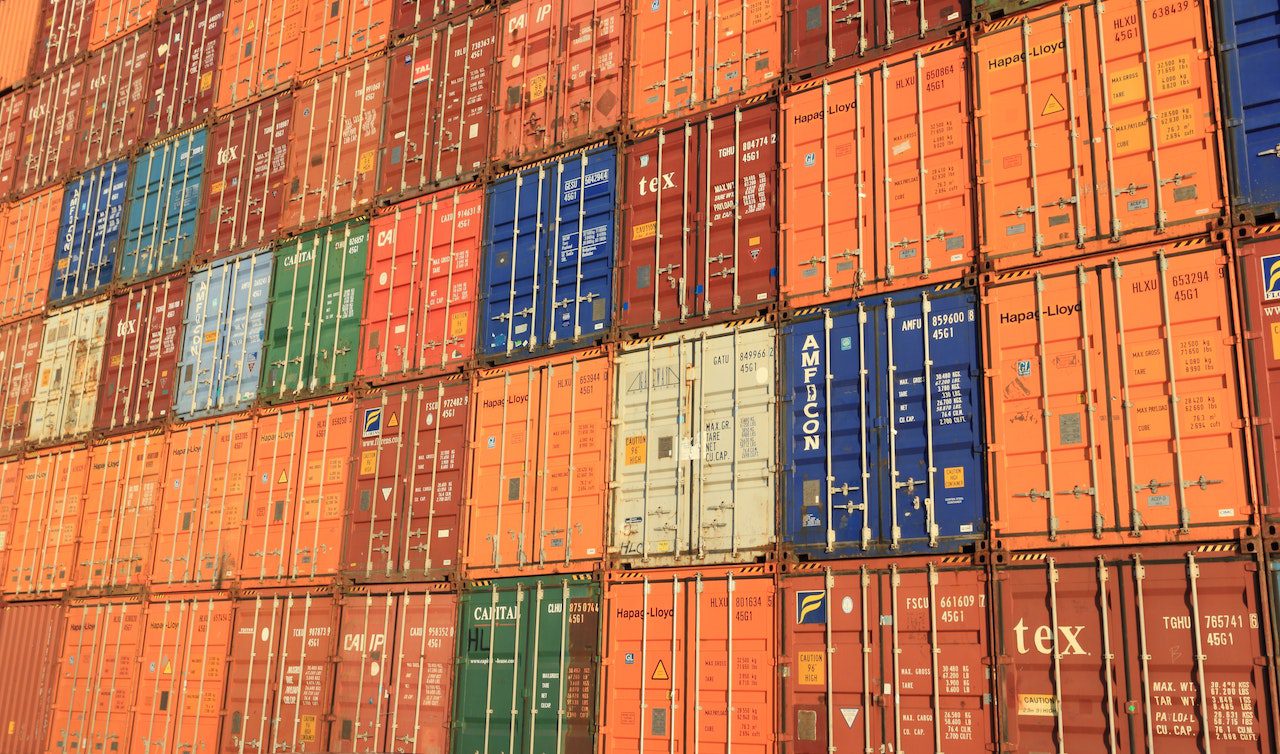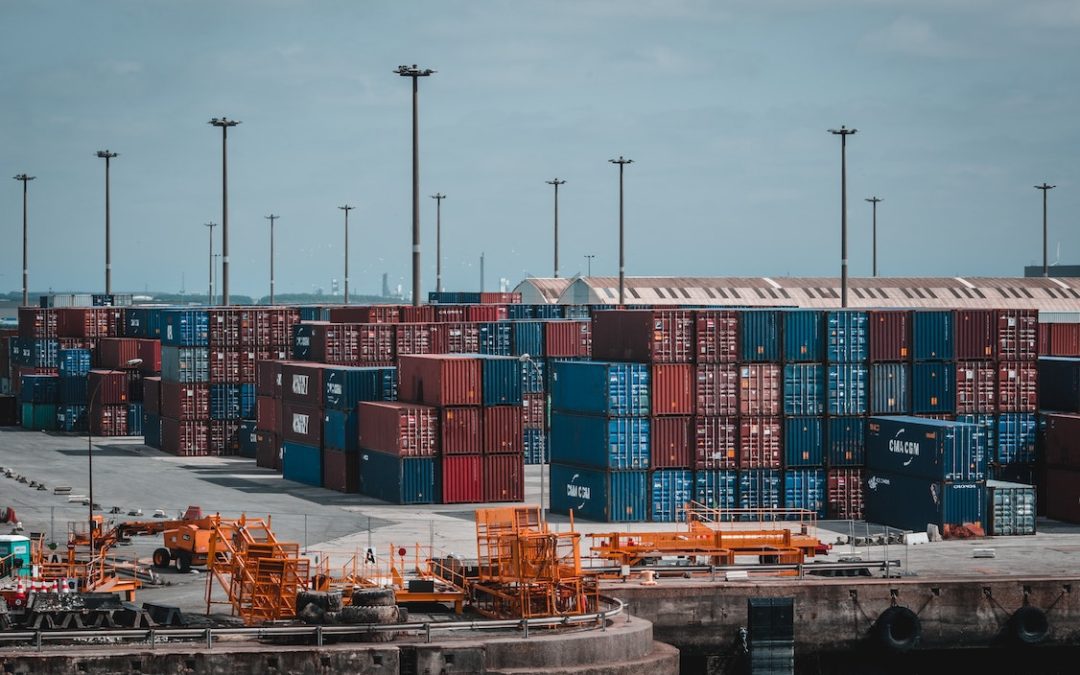To ease the pressure, here’s a quick guide to getting your goods where they need to be.
Let’s start at the beginning.
The Basics Of Freight
The term freight describes goods that need to be moved from one place to another but that don’t qualify for standard parcel shipping.
Almost any item can be freight, big or small. Larger quantities of smaller products can be packed together on a pallet, perishable goods can be housed in reefer containers to keep them fresh, and hazardous goods are packaged, labelled and handled with care to ensure they pose no risk in transit.
Freight shipping is the process of getting these shipments from their point of origin to their destination using one or several methods of transportation. Ships, planes, trains and trucks, as well as combinations of more than one mode, are all utilised in shipping to transport goods within the UK and internationally.
Key Terminology
If you haven’t noticed already, there is a ton of jargon to get to grips with in the shipping world, and understanding some of the common terms ahead of time can be incredibly useful.
Some of the key terminology you’ll come across includes…
Freight Forwarder
A freight forwarder is the person or company who organises the transportation of shipments for the shipper. They do not move the goods themselves but liaise with carriers to arrange delivery.
Freight forwarders perform a huge array of services that are key to successfully getting a consignment from A to B, such as organising all of the documentation, handling customs clearance and maintaining insurance policies.
Customs Broker
Customs brokers are experts in customs regulations and international trade compliance. They help businesses to navigate the import and export processes swiftly and efficiently, facilitating efficient communication with customs officials, ensuring shippers remain compliant and providing expert advice on trade procedures.
Incoterms
Incoterms, short for International Commercial Terms, are internationally recognised codes defining the tasks, risks and costs for the buyers and sellers of a shipping transaction. They are usually found on the Bill of Lading. However, they aren’t a legal obligation, and some companies choose not to use them.
Intermodal
Intermodal shipping means transporting one set of goods in a container using two or more modes of transport. By utilising intermodal containers, cargo can be moved between ships, trucks and trains quickly and efficiently.
FTL & LTL
When you ship FTL – or full-truck-load – you hire a full truck space for your freight, and this cargo stays on that truck from collection to delivery.
LTL, or less-than-truckload shipping, is a haulage service for consignments that aren’t of a large enough capacity to fill a whole truck. This method sees multiple consignments consolidated and organised into a truck which are then delivered to their various destinations.
BoL
The BoL, or Bill of Lading, is one of the main important legal documents used in both domestic and international shipping and acts as a contract between all involved parties.
Container
Shipping containers are large, standardised metal boxes designed to store and protect goods during freight transport.
Reefer
Reefers are a type of container used for moving goods that need to be temperature-controlled in transit, like perishable items.

Assessing Your Freight Needs
Now you’ve got your head around the fancy lingo, think about the nature of your freight to work out the most appropriate way to ship it.
What Are You Shipping?
Consider what the items are that you’ll be sending. Are they goods? Foods? Livestock? Hazardous?
Different types of freight come with varying rules and regulations and may require specific packaging, handling, storage and modes of transport.
Origin And Destination
The way you ship your goods also depends on where they are coming from and going to. It’s no use deciding to use a truck to get your goods halfway across the world when there are more efficient and less costly ways of doing things.
Volume And Frequency
How often will you be shipping cargo? And how large a consignment is on the books? The volume of your cargo will affect the method of transport you choose.
Budget
How much capital have you got to put behind the shipping of your goods? If you’ve just started up, you need to be extra careful with budgeting to remain in a positive cash flow.
The Benefits Of Using A Freight Forwarder
Do all of these factors give you a bit of a headache?
Here’s why you might want to think about working with a freight forwarder.
Reliability
Reputable freight forwarders can help boost your operational efficiency. With experience behind them, they can be relied on to get your goods to their destination safely and speedily.
Accountability
Shipping goods, especially internationally, opens them up to the potential of something going wrong. When you use a freight forwarder, they take care of insurance policies so that you don’t have to, and the responsibility for your freight falls to them instead.
Expertise And Insight
Freight forwarders are professionals who understand all of the different rules and regulations best. Navigating them skillfully reduces the risk of delays due to improper documentation and other issues.
Optimisation
With a ton of experience, freight forwarders work hard to pinpoint faster routes you can utilise to transport your shipments in as timely a manner as possible.
Cost-Effective
They hold strong relationships with carriers, warehouse operators, customs brokers and other individuals and can, therefore, get your goods where they need to be reliably and cost-effectively.
Getting Started With Freight
There is so much to think about, but it doesn’t have to be overwhelming. Our knowledge base has plenty of information available that will help you work out what you need and how to get it.
Here are a few articles we’d recommend you read next;
Freight Forwarders Help Small Businesses Thrive
Millennium specialises in supporting small businesses with their freight so that they can concentrate on growing their company.
Are you a small business that needs to find a freight solution? Get in touch with us today.

